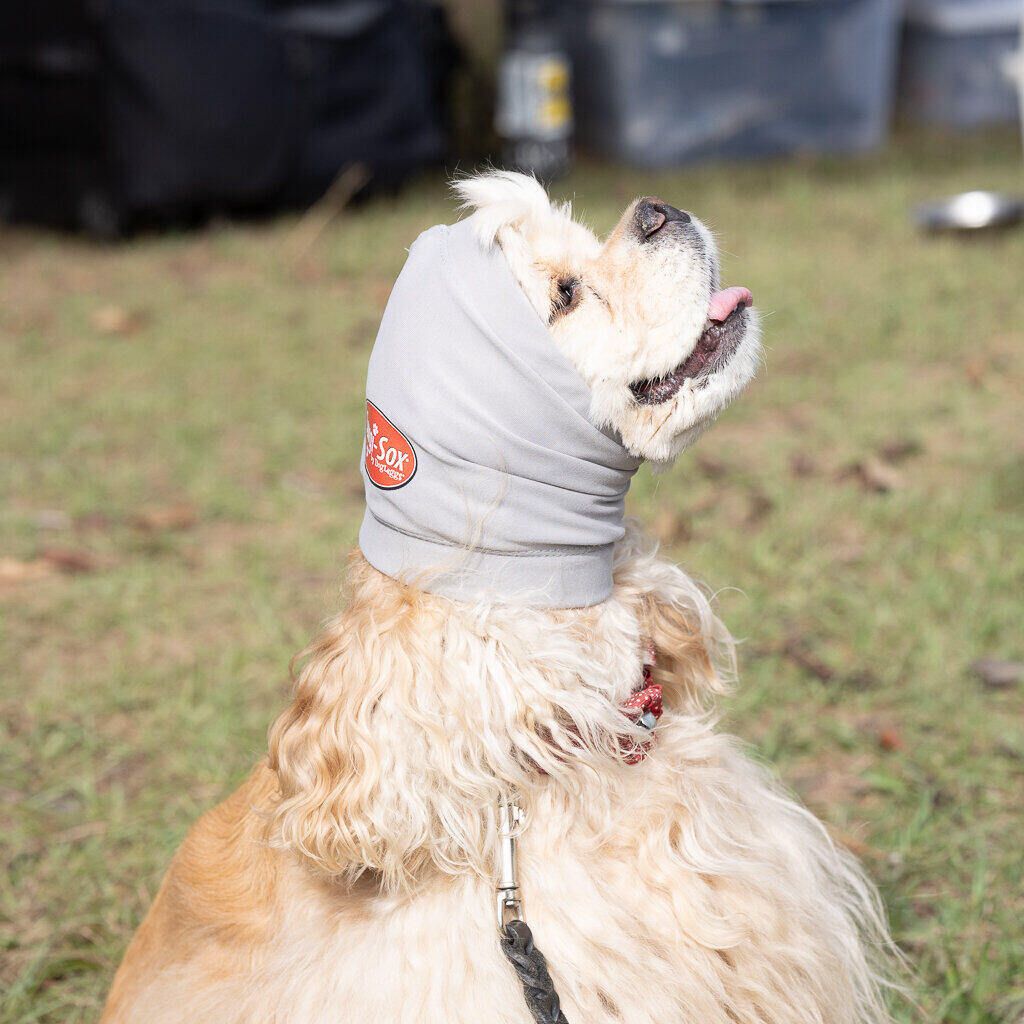The Drama Behind Ear Trauma: Everything you need to know about aural hematomas.

Your dog has been shaking his head a lot lately, and then suddenly, you see something disturbing: His ear flap has swelled up.
Aural hematomas are also known as ear hematomas or even blood blisters. An aural hematoma usually forms from trauma to a dog’s ear — often from head shaking — that causes a blood vessel or vessels to break and bleed into the area between skin and cartilage that make up the ear.
Aural hematomas are often a result of an underlying issue like allergies, ear infections, or something in the ear canal like a tick, mites, or a grass lawn. These will cause a dog’s ears to feel itchy or uncomfortable, leading to shaking and scratching at his head and ears — and resulting in ear trauma.
Effective treatment involves treating the hematoma while also treating the underlying condition.
Conditions Leading to Ear Hematoma
Environmental and food allergies can both lead to a lot of itching and discomfort in pets. There are many potential triggers for both kinds of allergies — from chicken and corn in food to pollen, grass, and mold in the environment. Allergies in themselves can take some investigation to figure out, but elimination diets and allergy testing may be a good place to start if these are suspected.
An ear infection is another condition that may cause a dog to shake his head excessively. They are painful and uncomfortable. When ear infections are chronic, there may be underlying conditions — including allergies and hormonal imbalances like hypothyroidism, for example. So if your dog is getting a lot of ear infections, it’s important to figure out the root cause.
Dogs who spend a lot of time outdoors may end up with something in their ear — like a tick or grass awn. As you can imagine, this is highly uncomfortable for a dog and will cause him to shake his head. Fortunately, once the foreign body, like a tick, is removed from your dog’s ear, the problem should rectify itself on its own.
If you have a younger dog with itchy ears, he may have ear mites. Some signs of these tiny parasites include head shaking, scratching ears, ears that droop when they’re usually upright, smelly ears, and a dark, coffee-ground-like discharge. Puppies and young dogs are more prone to get ear mites than adult dogs.
Of course, there are other reasons why a dog might shake his head enough to cause an ear hematoma, like a bug bite, so it’s important to keep a watchful eye if you notice any excessive shaking by your dog.
Aural Hematoma Treatment
There are a few ways an ear hematoma is treated. Surgery is one common treatment and involves draining the hematoma and suturing the ear flap while the dog is under sedation. A vet may also choose to use a syringe to aspirate the fluids out of a dog’s ear flap or place a drain to remove the blood until it heals and bandages the head and ear.
Holistic remedies may include homeopathy, topical applications of yarrow oil and/or witch hazel, and compression wraps. The Surgi-Sox Aural Compression Bandage is an alternative for head and ear bandaging. It helps prevent damage to the ear during head shaking. It can also reduce head shaking and help keep ear medications inside the ear to treat underlying ear conditions. A compression wrap may help a hematoma from getting worse or keep a new one from forming.
An ear hematoma may actually heal on its own over time. However, it can result in scar tissue and deformation known as “cauliflower ear,” which can block the ear canal. It’s best to consult a vet to develop the best plan to treat your dog’s ear hematoma, which should also include addressing any underlying conditions.
Prevention
Ideally, a dog never gets an ear hematoma in the first place. If you start to notice your dog shaking his head or scratching at his ears excessively, take note and act quickly before it turns into something worse. Check his ears for foreign objects and make sure he’s not hurting himself. If it continues, start looking into possible causes, including allergies, infections, and ear mites, and schedule a veterinary visit.

